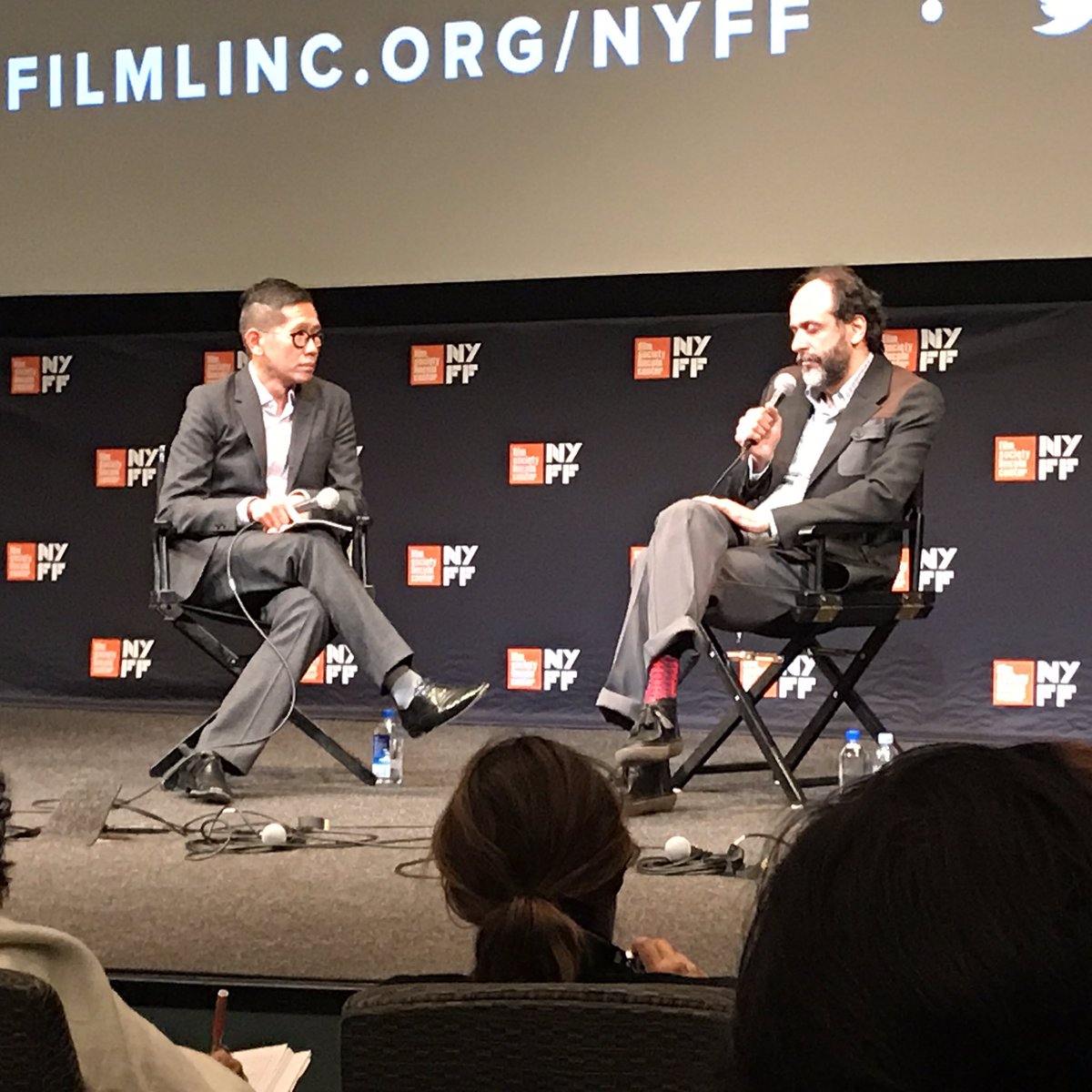Now THIS is the
interview we wanted
Wednesday evening!Luca Guadagnino | Call Me by Your Name Press Conference | NYFF55
Film Society of Lincoln Center
Published on Oct 4, 2017

A story of summer love unlike any other, the sensual new film from the director of I Am Love, set in 1983, charts the slowly ripening romance between Elio (Timothée Chalamet), an American teen on the verge of discovering himself, and Oliver (Armie Hammer), the handsome older grad student whom his professor father (Michael Stuhlbarg) has invited to their vacation home in Northern Italy. Adapted from the wistful novel by André Aciman, Call Me by Your Name is Guadagnino’s most exquisitely rendered, visually restrained film, capturing with eloquence the confusion and longing of youth, anchored by a remarkable, star-making performance by Chalamet, always a nervy bundle of swagger and insecurity, contrasting with Hammer’s stoicism. A Sony Pictures Classics release. Special thanks to French Cultural Services.